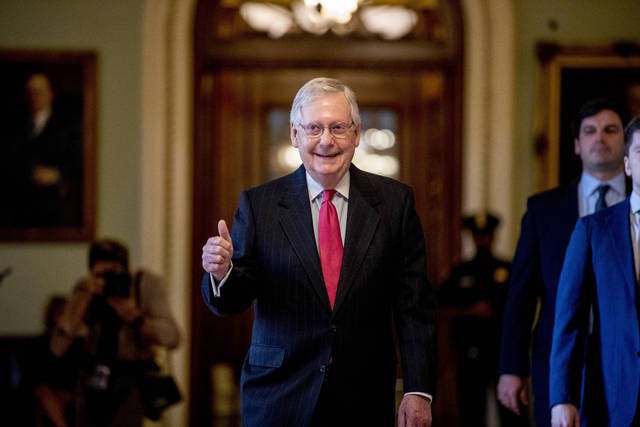Don’t call it a stimulus.
The bill passed by Congress and signed by President Trump will pump $2.2 trillion from Washington into the pockets of Americans and the checkbooks of businesses and the coffers of cities and states.
For people who have rent to pay and groceries to buy — and have you seen how much eggs have gone up in the last two weeks? — that $1,200 a person and $500 a kid is going to come in really handy. For people who can’t work because their offices are closed or circumstances have otherwise stuck a pin in their livelihood, it is going to be absolutely vital.
For businesses that have to pay overtime to the employees working round the clock or the companies trying to keep the payroll going despite the doors being locked, the money could be a lifesaving transfusion.
And for the governments and hospitals that are spending and spending to do their part in fighting the coronavirus pandemic, the money they get is first aid — necessary to stop the bleeding but a band-aid that will need to be replaced by stitches eventually.
But it’s not stimulus, and we shouldn’t call it that. We should be honest about what it is. It is life support.
Yes, the economy is stuttering, stumbling in fits and starts between epic drops and dramatic rises depending on the day’s events and who gave the last speech. With 3.2 million people filing unemployment claims, that is a lot of paychecks not being collected, a lot of things we need that we can’t get run out and buy and a lot of things we want that we can’t even think about right now.
There’s just not much the $2.2 trillion can do about that.
Instead, it is like those much-needed, short-supply ventilators that are needed to breathe air into the lungs of patients suffering with covid-19.
The money will temporarily respirate our country — not just our economy. It will keep us going, and that is critical right now. But it isn’t stimulus.
Stimulus is a defibrillator that jolts a body out of danger. It is a shock that brings you back from the brink. Legislators are already talking about the next coronavirus package and future help that could be required as we continue to hunker down against a viral threat with no deadline. That is intensive care, not a one-time zap.
That kind of help, like this one, will no doubt be necessary, because this is a hospital stay, not a trip to urgent care.








